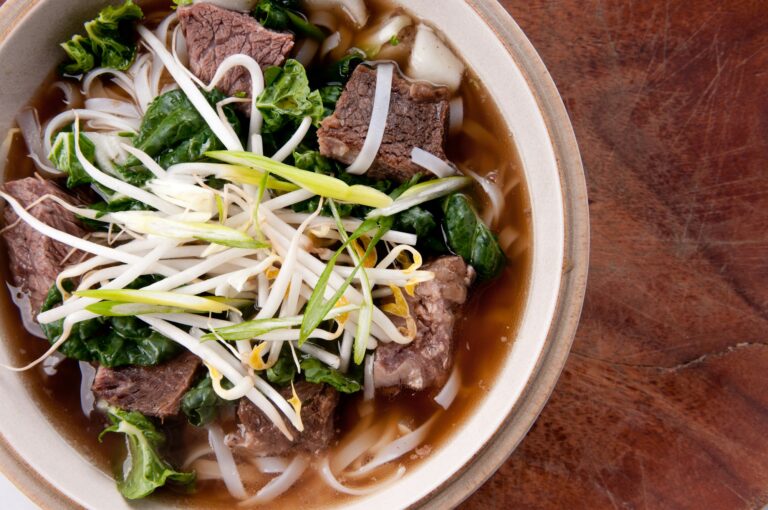The pictures in our articles might not always show exactly what the text is talking about. We use these images to make the article more interesting and eye-catching. They are there to add to the text, but not to replace it or show every detail.
In the world of culinary delights, arugula stands out as a versatile leafy green that not only tantalizes the taste buds but also packs a powerful punch of nutrients. Whether you're a seasoned salad lover or a budding chef eager to experiment with new flavors, arugula is a must-have in your kitchen arsenal. In this article, we'll delve into the fascinating world of arugula, exploring its origins, health benefits, and diverse culinary uses. So, buckle up and get ready to embark on a journey of discovery with these 16 intriguing facts about arugula.
The Nutritional Powerhouse of Arugula
Arugula, also known as rocket or roquette, is a member of the cruciferous vegetable family, known for its nutrient density. This leafy green gem is packed with essential vitamins, minerals, and antioxidants, making it a stellar addition to any diet.
- Vitamin Rich: Arugula is a rich source of essential vitamins, including vitamin K, vitamin C, and folate, which play crucial roles in maintaining overall health and well-being.
The Distinctive Flavor Profile of Arugula
One of the standout features of arugula is its distinctive peppery flavor, which sets it apart from other leafy greens. This unique taste adds depth and complexity to a variety of dishes, making arugula a favorite among chefs and food enthusiasts alike.
- Peppery Goodness: The slightly bitter and peppery taste of arugula pairs beautifully with citrus fruits, nuts, and cheeses, offering a dynamic flavor profile to any culinary creation.
The Versatile Uses of Arugula in Cooking
Arugula's versatility knows no bounds, as it can be incorporated into a wide range of dishes and culinary preparations. Whether you prefer it raw in salads, wilted in pasta, or blended into sauces, arugula's adaptability makes it a culinary chameleon.
- Adaptable Star: Arugula can be enjoyed in a myriad of ways, from topping pizzas and sandwiches to blending into pesto or sautéing as a flavorful side dish.
The Health Benefits of Arugula: A Nutritional Powerhouse
Beyond its delicious taste and culinary versatility, arugula boasts an impressive array of health benefits that make it a standout superfood in the world of leafy greens.
-
Antioxidant Rich: Loaded with antioxidants such as beta-carotene, lutein, and zeaxanthin, arugula helps protect the body against free radicals, supporting overall health and well-being.
-
Low-Calorie Wonder: For those mindful of their calorie intake, arugula is a dream come true. Low in calories but high in essential nutrients, it's a guilt-free addition to any meal.
The Cultural Significance of Arugula
Arugula's rich history spans centuries, with cultural beliefs and traditional uses that add depth to its culinary allure.
-
Historical Aphrodisiac: In ancient times, arugula was revered as a natural aphrodisiac, believed to ignite passion and set the stage for romantic encounters.
-
Mediterranean Staple: A beloved ingredient in Mediterranean cuisine, arugula features prominently in salads, pasta dishes, and as a flavorful topping for pizzas and bruschetta.
Growing and Harvesting Arugula: A Gardener’s Guide
For those with a green thumb, cultivating arugula at home offers a rewarding experience that yields fresh, vibrant greens for culinary creations.
- Fast-Growing Wonder: Arugula is a fast-growing plant that thrives in home gardens or containers, requiring minimal care and providing a bountiful harvest within weeks.
Incorporating Arugula Into Your Diet: Practical Tips
Whether you're a seasoned chef or a novice in the kitchen, adding arugula to your diet can be a simple and delicious way to boost your nutritional intake.
-
Smoothie Supercharge: Amp up the nutritional content of your favorite smoothie by incorporating a handful of arugula for an added dose of vitamins and minerals.
-
Traditional Twist: Explore the world of traditional Italian cuisine by incorporating arugula into classic dishes like pasta primavera and risotto for an authentic flavor experience.
Exploring the Medicinal Uses of Arugula
Beyond its culinary applications, arugula has a long history of medicinal uses, with potential benefits for digestive health and overall well-being.
-
Digestive Aid: Rich in fiber, arugula supports healthy digestion and can help prevent constipation, keeping your digestive system running smoothly.
-
Immune Boost: Packed with essential vitamins A and C, arugula plays a key role in bolstering your immune system and supporting your body's natural defense mechanisms.
Conclusion: Embracing the Arugula Advantage
In conclusion, arugula is a nutritional powerhouse that offers a myriad of health benefits, culinary possibilities, and cultural significance. From its rich history as an aphrodisiac to its modern-day popularity in Mediterranean cuisine, arugula continues to captivate food enthusiasts around the globe. So, the next time you're perusing the produce aisle, don't underestimate the humble arugula – embrace its vibrant flavor and nutritional benefits for a culinary experience like no other.
Frequently Asked Questions About Arugula
-
What is arugula?
Arugula, also known as rocket or rucola, is a leafy green vegetable with a distinct peppery taste, belonging to the Brassicaceae family of cruciferous vegetables. -
How do I store arugula?
To keep arugula fresh, store it unwashed in a plastic bag in the refrigerator and use it within a few days to maintain its flavor and texture. -
Can I eat arugula raw?
Absolutely! Arugula is commonly enjoyed raw in salads, sandwiches, and wraps, adding a peppery kick to your favorite dishes. -
Is arugula a good source of vitamins and minerals?
Yes, arugula is packed with essential nutrients, including vitamins A, C, and K, as well as calcium and iron, making it a nutritional powerhouse. -
Does arugula have any health benefits?
Arugula offers numerous health benefits, including antioxidant protection, anti-inflammatory properties, and digestive support, making it a valuable addition to a balanced diet. -
How can I incorporate arugula into my meals?
Arugula can be used in a variety of ways, from salads and pasta dishes to pizzas and smoothies, offering versatility and flavor to your culinary creations. -
Are there any precautions when consuming arugula?
While arugula is generally safe for consumption, individuals with allergies to similar vegetables in the Brassicaceae family should exercise caution and consult a healthcare professional if unsure.
As you embark on your arugula adventure, remember to savor the flavors, reap the health benefits, and enjoy the cultural richness that this humble leafy green has to offer. Happy cooking and bon appétit!






